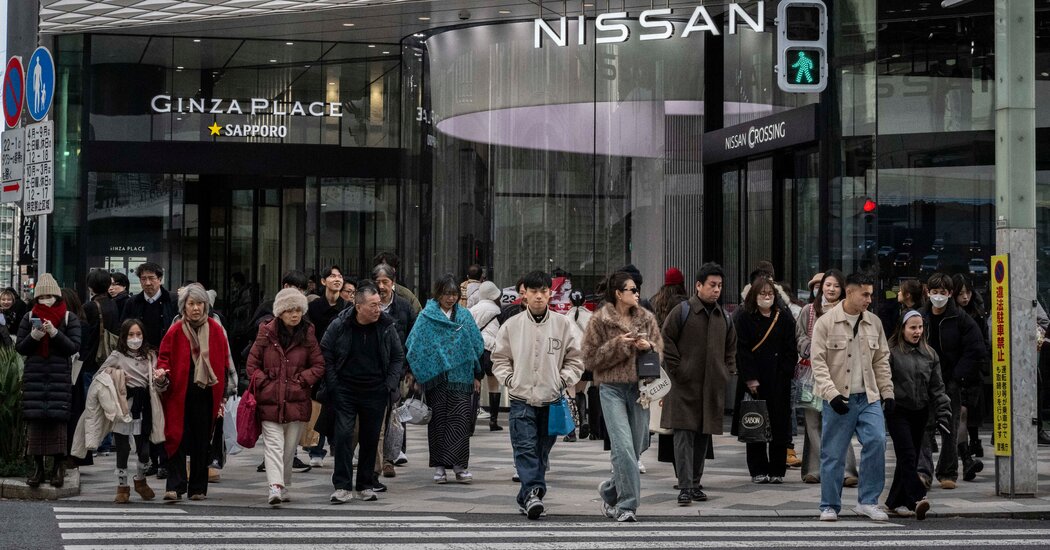For decades in Japan, it was accepted as gospel: A weak currency makes companies more competitive and bolsters the economy. Part of that promise came true last year: As the yen tumbled to a 37-year low against the dollar, big brands like Toyota Motor reported the highest profits in Japanese history. Stocks soared to record highs.
Yet for the majority of Japanese households, the weakened yen has done little more than drive up the costs of basic living expenses, such as food and electricity. Figures released Monday showed that while Japan’s economy picked up pace in the second half of 2024, its inflation-adjusted growth rate for the full year slowed to 0.1 percent, down from 1.5 percent the prior year.
Attempting to stimulate exports by weakening a currency has long been a policy tool for countries seeking economic growth: President Trump has said he wants a weaker dollar to help American manufacturing. Japan provides an example of what can happen when a depreciated currency, even if it helps exports, crushes consumer purchasing power by worsening inflation.




